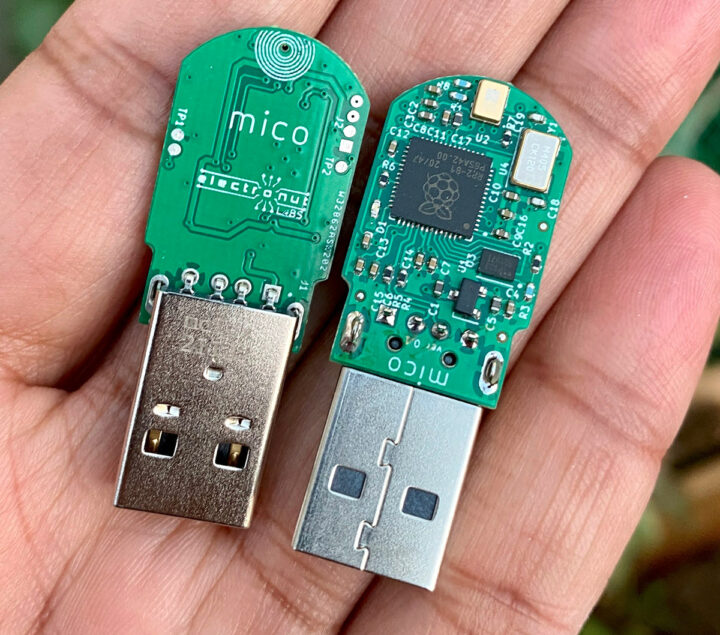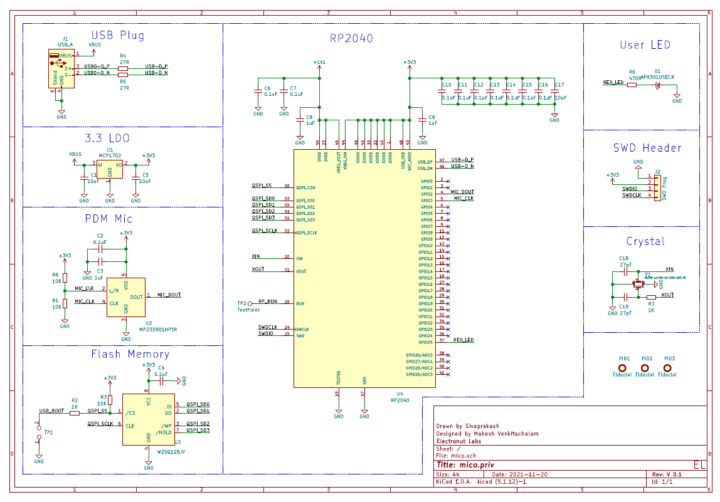Raspberry Pi RP2040 dual-core Cortex-M0+ microcontroller has found its way into Mico, a compact USB microphone with a PDM microphone providing better quality than cheap USB microphones going for one or two dollars or even 5 cents shipped for new Aliexpress users.
The project started when Mahesh Venkitachalam (Elecronut Labs) was doing audio experiments with Machine Learning on the Raspberry Pi, and found out USB microphone dongles were extremely noisy with poor (distance) sensitivity, so he completed the project with a high-quality I2S microphone instead. He then had the idea of making his own USB microphone and found out Sandeep Mistry had already developed a Microphone Library for Pico, so he mostly had to work on the hardware that’s how Mico Raspberry Pi RP2040 USB microphone came to be.
Mico specifications:
- MCU – Raspberry Pi RP2040 dual-core Cortex-M0+ microcontroller @ up to 133 MHz with 264KB SRAM
- Storage – 128Mbit SPI flash (W25Q128JV)
- Microphone – STMicro MP23DB01HPTR PDM microphone
- USB – 1x USB Type-A male port
- Misc – User LED
- Power Supply – 5V via USB; 3.3V LDO
Mahesh explains the RP2040 MCU requires only a limited amount of components, and as a result, the Mico schematic is pretty simple.
You’ll find KiCad schematic and PCB layout, C samples based on Raspberry Pi Pico C/C++ SDK, and the UF2 firmware on Github. As noted above the firmware relies on the Microphone library for Pico, plus a PIO-based blinky program and changes to some description strings. If you’re interested in Raspberry Pi Pico/RP2040, you may want to have a look at Sandeep Mistry’s Github account named ArmDeveloperEcosystem since it has several other libraries. At first it even looks like an official Arm repo, but Sanpeed is indeed working for Arm, but he is the only maintainer so I’m not sure.
The video above is a quick demo using Mico with Audacity software. Read Mahesh’s write-up to learn more about the project, and the difference he found between Micro and cheap USB microphone dongles.
Via Hackster.io

Jean-Luc started CNX Software in 2010 as a part-time endeavor, before quitting his job as a software engineering manager, and starting to write daily news, and reviews full time later in 2011.
Support CNX Software! Donate via cryptocurrencies, become a Patron on Patreon, or purchase goods on Amazon or Aliexpress






